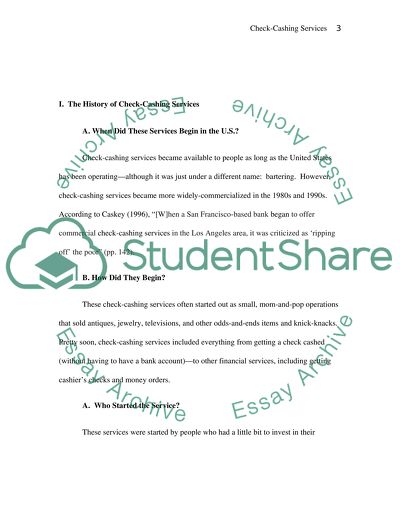Cite this document
(“How Check-Cashing Services Impact Low-Income Americans Research Paper”, n.d.)
Retrieved de https://studentshare.org/law/1392435-how-check-cashing-services-impact-low-income
Retrieved de https://studentshare.org/law/1392435-how-check-cashing-services-impact-low-income
(How Check-Cashing Services Impact Low-Income Americans Research Paper)
https://studentshare.org/law/1392435-how-check-cashing-services-impact-low-income.
https://studentshare.org/law/1392435-how-check-cashing-services-impact-low-income.
“How Check-Cashing Services Impact Low-Income Americans Research Paper”, n.d. https://studentshare.org/law/1392435-how-check-cashing-services-impact-low-income.


